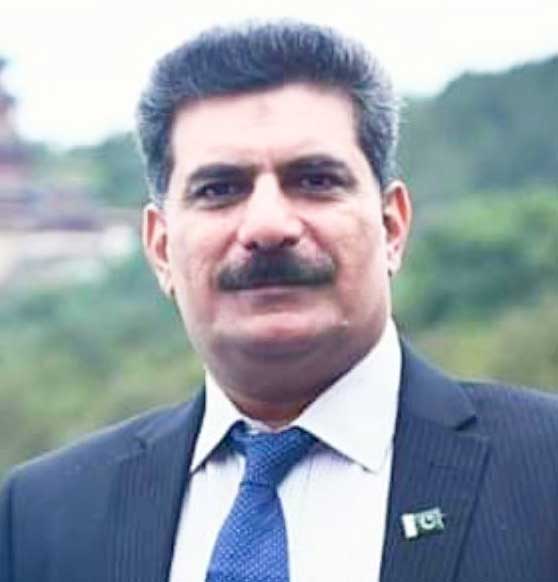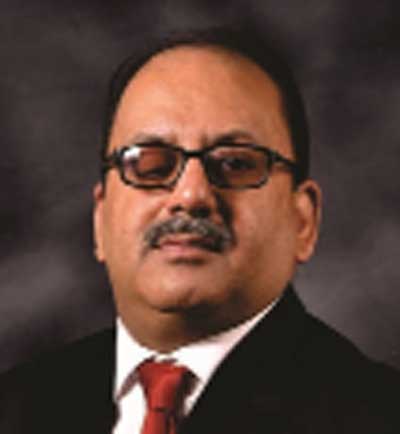The annual gathering of Muslims for the Hajj pilgrimage is one of the most sacred and spiritually potent events in the Islamic calendar. It is a moment when millions of believers gather at the Holy sanctuary of the Ka’bah, united for prayer, submission, and reflection. At the heart of this assembly, the sermon delivered by the Imam of the Ka’bah carries significant weight. It is not merely a religious address-it is a moral and spiritual guide for the global Muslim Ummah. Hence, the content of this sermon holds profound implications for the collective conscience of over a billion Muslims around the world.
It is in this context that the recent sermon delivered by the Imam of the Ka’bah has left many within the Muslim world disheartened. While the Imam prayed for the people of Palestine-a gesture that resonates with the pain of a deeply wounded community-he fell short of addressing the root causes of their suffering. Most notably, the sermon omitted any direct condemnation of the ongoing atrocities perpetrated by the Israeli state in Gaza. The failure to name the oppressor not only renders the prayer incomplete but risks reducing the moral weight of the Ka’bah’s pulpit to mere platitudes.
The crisis in Gaza is not simply a humanitarian issue; it is a matter of systematic injustice, occupation, and denial of fundamental human rights. Thousands of civilians, including children and women, have lost their lives in relentless bombardments. Entire neighborhoods have been razed to the ground. Hospitals, schools, and refugee camps have been targeted. In such a dire context, the moral obligation of a religious leader-especially one who holds the symbolic and spiritual authority of the Imam of the Ka’bah-is not limited to offering prayers. It must include speaking the truth, no matter how uncomfortable or politically sensitive it may be.
The Qur’an repeatedly urges believers to stand firmly for justice: “O you who believe! Stand out firmly for Allah as bearers of witness with justice.”
(Surah al-Ma’idah 5:8)
Silence in the face of injustice, especially when it emanates from such a high religious platform, risks compromising the integrity of the Muslim voice on global issues. The deliberate avoidance of naming the aggressor in Gaza has been interpreted by many as a sign of political constraint-a constraint unbecoming of the pulpit that symbolizes the House of God on earth.
The sermon also failed to mention the suffering of Muslims in other parts of the world. In India, for instance, the rise of the Hindutva ideology has resulted in a systematic marginalization of Muslim minorities. Discriminatory laws such as the Citizenship Amendment Act (CAA), mob lynchings, and communal violence have become alarmingly frequent. The people of Kashmir continue to suffer under an unending military siege, curfews, and communications blackouts. In Assam, the National Register of Citizens (NRC) threatens to render thousands stateless, many of whom are Muslims by faith.
In Myanmar, the Rohingya community continues to face persecution and displacement. These are not isolated tragedies but interconnected violations that demand a collective and unequivocal response from the global Muslim leadership.
Yet, these names and nations found no mention in the sermon from the most sacred Islamic sanctuary. The Ka’bah is not the possession of any one regime-it is the spiritual epicenter for all Muslims, irrespective of nationality, ethnicity, or sect. Its pulpit should, therefore, reflect the collective pain and aspirations of the Ummah.
Another grave omission in the sermon was the crisis of intra-Muslim violence and sectarianism. Extremist ideologies, often propagated under the guise of religious purity, have torn apart Muslim societies. Some militant factions, operating in the name of Islam, have declared other Muslims as kafir (disbelievers), justifying their murder and persecution. These acts are not only crimes against humanity but direct violations of the teachings of the Prophet Muhammad (peace be upon him), who said:
“Cursing a Muslim is like murdering him.”
(Sahih al-Bukhari, 48)
This internal strife has weakened the Ummah more than any external force. The Ka’bah, as the unifying symbol of Islamic monotheism, should have been the place from where a strong denunciation of such takfiri (excommunicating) ideologies was issued. The Imam could have used his voice to call for unity, tolerance, and an end to the cycle of sectarian violence that continues to plague many Muslim-majority nations.
The world today is witnessing an alarming rise in Islamophobia. From the banning of hijabs in schools to restrictions on mosques and minarets, to hate crimes against Muslims in Western countries, Islam is increasingly being vilified in public discourse. The Imam’s failure to address this trend was a missed opportunity. The Ka’bah’s pulpit should be used not only to console the victims but also to educate the world about the peaceful essence of Islam.
Prophet Muhammad (peace be upon him) was sent as a “mercy to all the worlds” (rahmatan lil-‘alameen), not as a symbol of intolerance or hatred. The Imam of the Ka’bah has a responsibility to represent that prophetic mercy, calling upon world leaders to reject bigotry and foster a culture of peace and coexistence.
Another glaring omission in the sermon was any critical reflection on the role of Muslim rulers themselves. Many Muslim-majority countries suffer not due to external conspiracies but internal corruption, injustice, and misgovernance. Tyranny, suppression of dissent, and absence of rule of law are commonplace. Islamic leadership, including the Imam of the Ka’bah, must hold Muslim rulers to account.
The Prophet Muhammad PBUH said
“The most excellent jihad is to speak a word of truth in the face of a tyrannical ruler.”(Sunan Abu Dawood, 4344)
A sermon that fails to speak truth to power is an abdication of religious responsibility. The pulpit of the Ka’bah should never become a tool of state propaganda or political neutrality in the face of clear injustice.
The time has come for a serious re-evaluation of the institutional structure surrounding the office of the Imam of the Ka’bah. The religious authority of such a position should not be beholden to political forces. Mecca and Madinah are not merely geographic locations; they are symbols of unity, morality, and divine guidance. The sermon delivered from their pulpits should be free from fear, political censorship, or diplomatic balancing acts.
The Muslim Ummah deserves spiritual leaders who speak with courage, sincerity, and justice. A call must be made for greater autonomy and independence for the institution of the Imamate of the Haramayn (Two Holy Sanctuaries). This autonomy will ensure that the voices coming from the most sacred Islamic platforms are guided solely by the principles of truth and divine justice.
The sermon delivered by the Imam of the Ka’bah should have been a voice of the voiceless. It should have echoed the cries of children in Gaza, the silenced voices of Kashmir, the anguished hearts of deprived, and the fears of Muslims facing Islamophobia across the globe. It should have reminded Muslim rulers of their obligations and called out those who commit injustices under the guise of religion.
Let the pulpit of the Ka’bah be restored to its rightful place-as a lighthouse of truth, justice, and compassion for all. Let it stand as a voice that is fearless, impartial, and guided by the Qur’an and Sunnah. Only then will it truly reflect the soul of the Islamic message and the spirit of the global Muslim Ummah.
Sign in
Welcome! Log into your account
Forgot your password? Get help
Password recovery
Recover your password
A password will be e-mailed to you.





